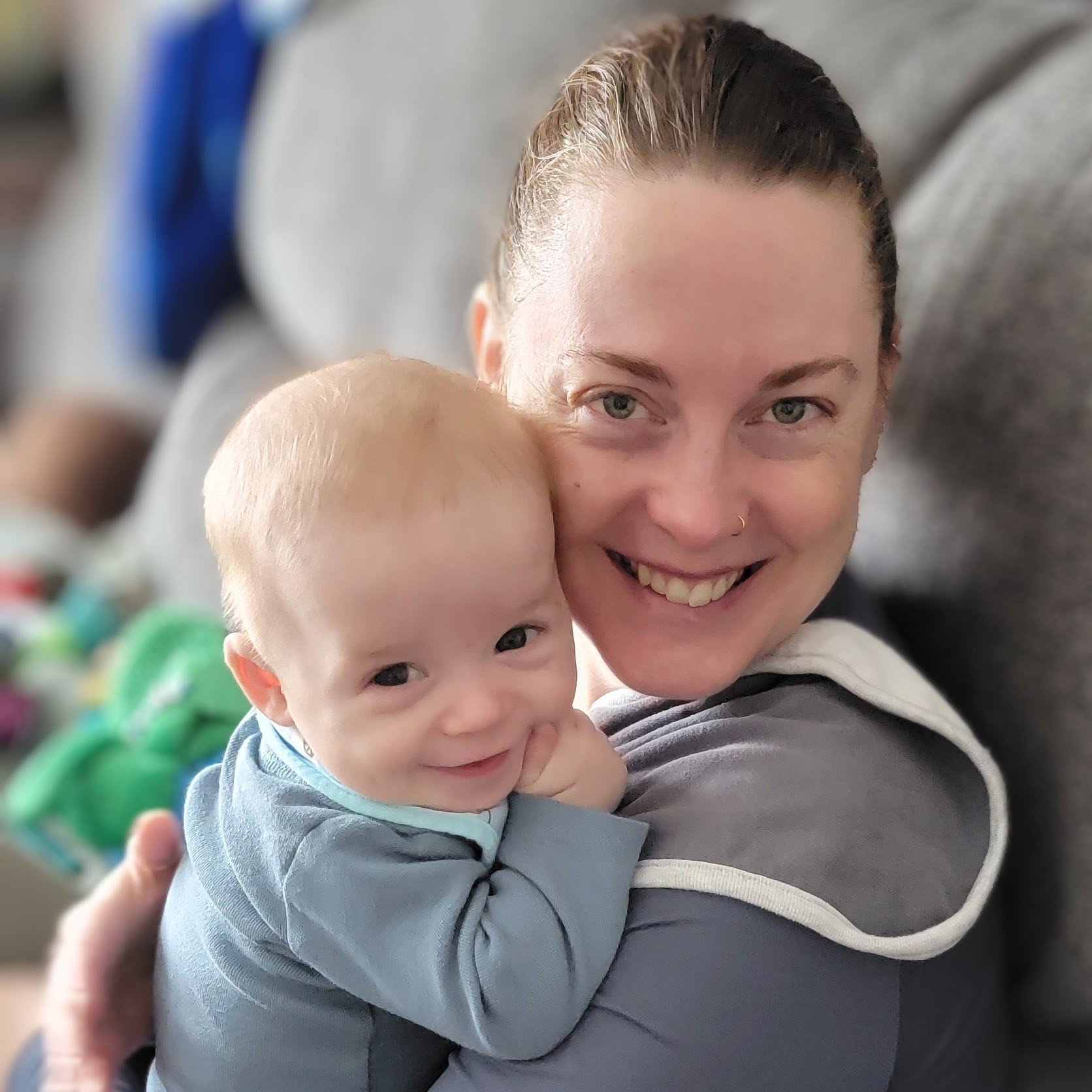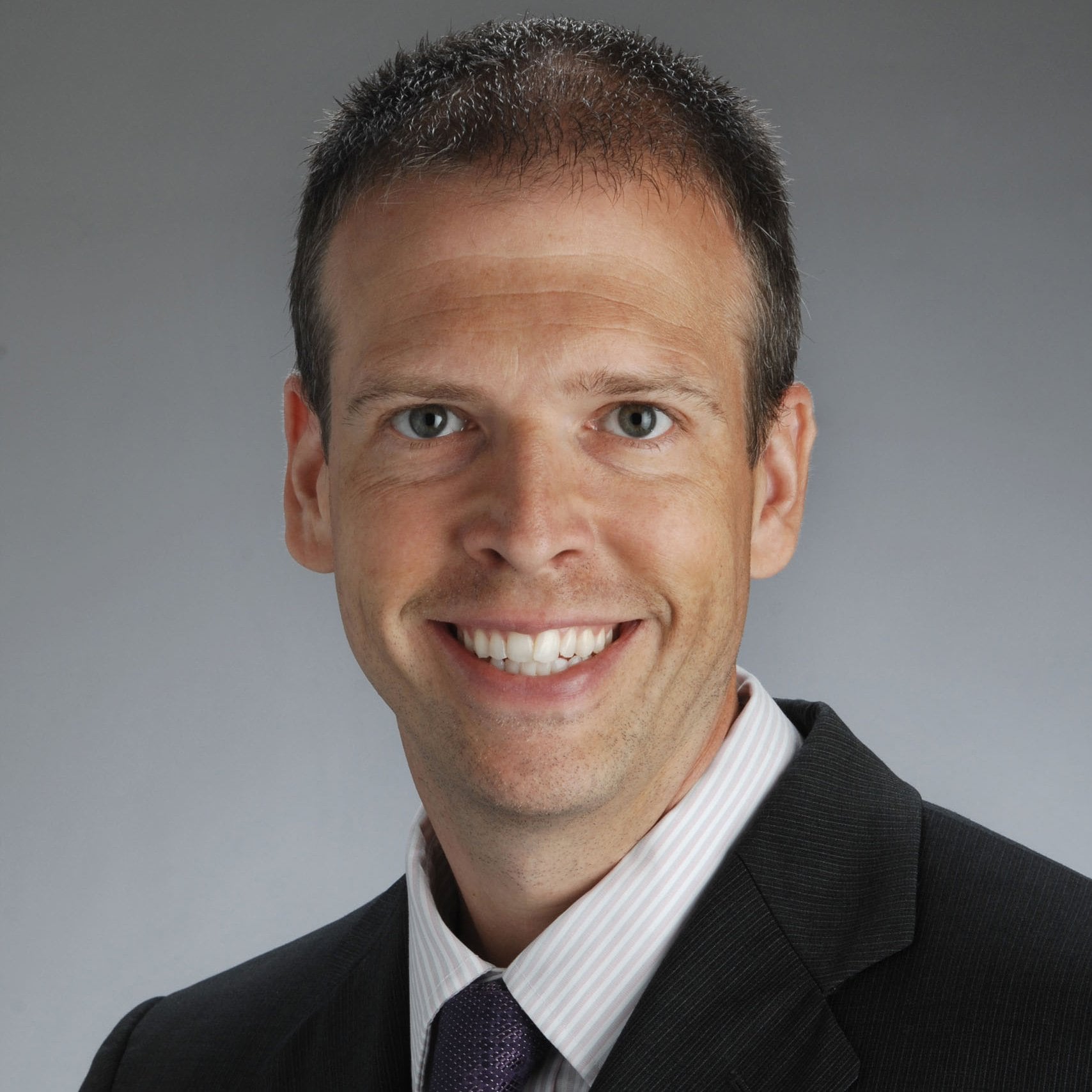Maternal fetal medicine services provide prenatal care close to home
When Amy Elzea visited her midwife for a routine anatomy scan at 20 weeks, she received news that she wasn’t expecting. They found an anomaly.
“We’d been receiving all of our prenatal care at Lawrence OB-GYN Specialists with (midwife) Lara Rivera,” Elzea said. “During a routine scan, they found what they thought was a clubbed foot in our son and we were referred to The University of Kansas Health System for a follow-up.”

Amy Elzea and Oscar
Elzea and her husband, Patrick, traveled to downtown Kansas City to meet with a physician at the hospital for another scan to confirm the diagnosis. The recommended treatment was for Elzea to see a maternal fetal medicine specialist every four weeks to check and see how the baby’s foot and bones were aligning as he continued to grow.
Making the journey to the metro each month could have been a daunting task but fortunately, Elzea had another option available – visiting The University of Kansas Health System’s Advanced Maternal and Fetal Care clinic at the LMH Health West Campus.
LMH Health welcomed the clinic in December 2021 to provide advanced care to both mother and baby prior to, during and shortly after pregnancy. Having such a specialized clinic close to home has been made possible by LMH’s strategic clinical relationship with The University of Kansas Health System.
“Offering this service to our community and patients not only allows us to provide better care close to home, but allows our patients time back in their day to avoid traveling into the KC area for care,” said Jared Abel, LMH Health vice president of strategy and clinic operations.
Caring for moms and babies
Seven physicians and specialists from the advanced maternal fetal medicine team care for patients at the LMH Health West Campus. They take turns rotating through the clinic on Tuesdays to help detect, monitor and treat high-risk pregnancy conditions, allowing patients early access to specialty care. Some examples include:
- Autoimmune diseases
- Cervix insufficiency
- Chronic hypertension
- Congenital heart disease
- Gestational diabetes
- Twin-to-twin transfusion syndrome
- Severe Intrauterine Growth Restriction

Marc Parrish, DO
Marc Parrish, DO, a perinatologist with The University of Kansas Health System, said patients may be referred to the clinic for a number of reasons, including high-risk pregnancy care and referrals for second opinions on ultrasounds.
“Our team uses machines with higher resolution, allowing us to provide a higher level of detail in the ultrasound interpretation,” he said. “The sonographer and physician who are onsite are adept at looking for structural malformations in a baby or for any signs that a genetic condition could be present. Their trained eyes and the quality of the imaging we’re able to obtain are vital and allow us to immediately interpret the results.”
Some expecting mothers seen in the clinic have pre-existing conditions that their OB-GYN might not be comfortable managing due to the potential risks, such as lupus or triplets. Other conditions, such as insulin dependent diabetes or preterm hypertension, may be co-managed between the local obstetrician and the perinatologist.
“In other cases, the patient’s primary obstetrician may have seen something concerning on a routine ultrasound which prompts them to refer the patient to us for a second opinion,” Parrish said. Fortunately, in most instances, we are able to provide the patients with reassurance and the pregnancy continues without any complication, but occasionally we do have to discuss implications of specific congenital anomalies and genetic disorders in babies.”
The maternal fetal medicine team scheduled Elzea for scans every four weeks due to her son’s diagnosis. When clubbed foot is present and caught early, it can lead to other issues. The scans were scheduled to make sure there weren’t other complications that arose along the way.
“Having the maternal fetal medicine team in Lawrence was a huge benefit. Having this service available in our own backyard saved us countless trips to downtown Kansas City,” she said. “We were able to visit the West Campus and they had the advanced ultrasound technology we needed to check on our son’s progress.”
What about delivery?
You might think that patients seen in the maternal fetal medicine clinic are required to drive into the metro to deliver their babies. Parrish said that’s not necessarily true. Many of the mothers they see are able to deliver close to home at LMH Health.
“Mothers with babies who are younger than 34 weeks or babies who may need surgery afterward will deliver at KU,” he said. “We also deliver those mothers with specific preexisting medical conditions such as those patients with cardiac issues or who have conditions that make them more at-risk for bleeding at the time of delivery or afterward. We fortunately have additional resources that allow us to provide patients with optimal pregnancy outcomes.”
Elzea felt fortunate that even with her son’s diagnosis, she was able to deliver in her own community at LMH Health.
“Because there weren’t any complications with his foot, I was able to have a normal delivery with a midwife at LMH Health,” she said. “I was induced at 37 weeks because I had signs of preeclampsia. We checked in on Friday night, delivered on Sunday morning and went home on Tuesday.”
Elzea was back at the hospital the following day because the swelling associated with her preeclampsia had returned. What could have been a scary time away from her newborn was made easier by the coordination of care between the teams at LMH Health.
“I give so much credit to the hospital and doctors, specifically the OB-GYN team. When I was in the emergency department, they communicated with the midwives to coordinate treatment and admitted me back to the maternity ward,” she explained. “I was able to have my newborn in the room with me when he was only three or four days old. The care I got from all of the departments from the ED on – everyone knew what was going on with my care at any given moment and communicated to give me the best possible treatment.”
Peace of mind
Having the maternal fetal medicine clinic benefits patients in Lawrence, as well as those living in surrounding rural communities. Parrish knows that having this resource to get care close to home is a welcome addition for many families.
“Some of our patients require an ultrasound each week and that can be time consuming,” he said. “It’s also causes less juggling for those patients with work and child obligations. The convenience factor and having a reliable access point for advanced care are huge advantages.”
Elzea agreed that the time savings played a big factor in her care. She was able to save herself countless trips to the metro for the care she needed.
“The team in Lawrence provided top-level care with advanced ultrasound and sonographers available to read them. It’s amazing that there’s such talent here,” she said. “I encourage women who need a higher level of care to speak with their doctors to see if the advanced maternal fetal medicine clinic is right for them. It’s been amazing to be able to get this care right in my own backyard.”